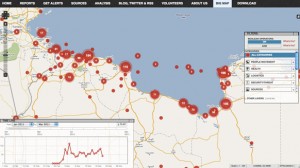
(AP) – 22 April 2011
NEW YORK (AP) — Former chief U.N. nuclear inspector Mohamed ElBaradei suggests in a new memoir that Bush administration officials should face international criminal investigation for the “shame of a needless war” in Iraq.
Freer to speak now than he was as an international civil servant, the Nobel-winning Egyptian accuses U.S. leaders of “grotesque distortion” in the run-up to the 2003 Iraq invasion, when then-President George W. Bush and his lieutenants claimed Iraq possessed doomsday weapons despite contrary evidence collected by ElBaradei's and other arms inspectors inside the country.
The Iraq war taught him that “deliberate deception was not limited to small countries ruled by ruthless dictators,” ElBaradei writes in “The Age of Deception,” being published Tuesday by Henry Holt and Company.
The 68-year-old legal scholar, head of the International Atomic Energy Agency (IAEA) from 1997 to 2009 and recently a rallying figure in Egypt's revolution, concludes his 321-page account of two decades of “tedious, wrenching” nuclear diplomacy with a plea for more of it, particularly in the efforts to rein in North Korean and Iranian nuclear ambitions.
Phi Beta Iota: We endorse the truth & reconciliation process and believe that if the USA is to restore its promise as a contributor to the international community of nations, it must first disclose the truth. In our view, the investigation should begin three months prior to 9-11, when Dick Cheney first mandated a nation-wide counter-terrorism exercise that assured his complete control over the entire US Government on 9-11….an assurance he and his planners needed to not just let it happen, but to execute all the trimmings and then carry on with the Weapons of Mass Deception that committed America to an elective multi-trillion dollar war against multiple countries. Dick Cheney hijacked the Presidency. We all need the truth on the table.
Bob Seelert, Chairman of Saatchi & Saatchi Worldwide (New York): When things are not going well, until you get the truth out on the table, no matter how ugly, you are not in a position to deal with it.
See Also:
Worth a Look: Book Reviews on Disinformation, Other Information Pathologies, & Repression
Worth a Look: Book Reviews on Empire as Cancer Including Betrayal & Deceit







